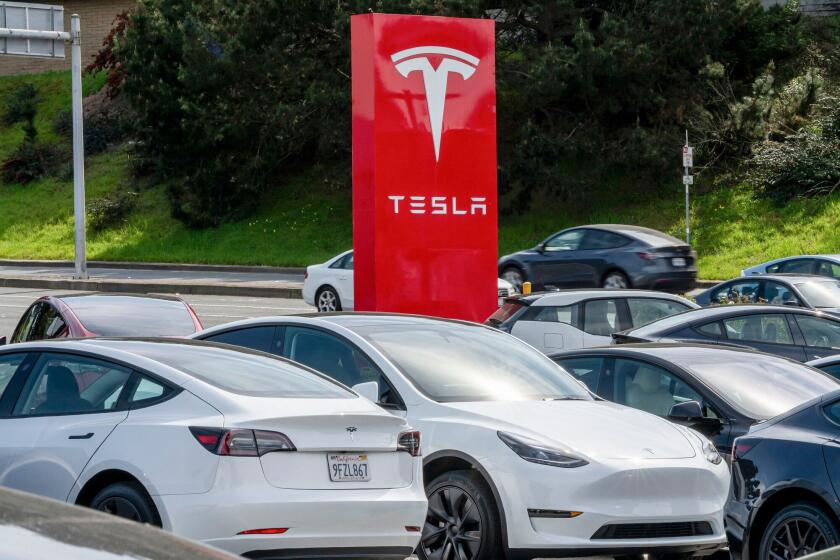Savers Need Protecting, Not Bankers
- Share via
Congress is considering proposals that mix the publicly insured banking system not only with other financial firms such as insurance and securities but also with commercial interests. That raises many of the same concerns that were part of the S&L; debacle.
Under the name of “financial modernization,” Congress and the Clinton administration are even considering permitting retail and industrial corporations to buy federally insured banks, breaking the long-standing rule that banks, which provide financing for businesses, not be allowed to own those businesses. That means that Wal-Mart down the street could also own most of the banks in your neighborhood.
Leaving aside the weighty problems associated with letting GM gobble up Citicorp, what are banks promising consumers if they are allowed to expand into all types of financial services? They promise a bigger world of “one-stop” shopping in which you can buy car insurance, invest in mutual funds and make a deposit at the same place. With the added competition, they promise, better deals are just around the corner.
What they don’t tell you is that as your lender, your bank may make it difficult to get a car loan unless you buy its insurance. While anxiously awaiting a mortgage approval, you can expect a call from the bank pressuring you to buy its homeowners insurance. Never mind that the insurance they’re selling is not what you need and is overpriced because of the high commissions they get from the sale. Or your bank may put the money you thought was in a safe investment into a high-risk mutual fund. You can expect calls at home from bank salespeople, who, after combing through your bank records--including recent big deposits--push some insurance product you have never heard of or a “safe” investment promising “huge” returns.
Can banks get away with such tactics in the one-stop-shopping world they seek? They can because there are no legal restrictions to prevent them. While the banks talk about modernizing the laws so they can expand their powers, what is really needed is modernization of rules that protect consumers from unfair pressure tactics and invasions of privacy.
While it is not clear that consumers will benefit from an expansion of banks into new markets in the absence of strong consumer protections, it is clear that the industries lobbying for such changes will. But it is consumers and taxpayers who are at risk.
While some of the industry’s deregulation proposals make sense with the addition of consumer protections, one proposal is so extreme it should be off the table altogether. Breaking the long-standing barriers between banking and commerce could lead to significant problems in the economy. The concentration of power could have a disastrous impact on the economy if decisions affecting banks and the availability of credit were made by a few commercial entities or if the financial condition of those entities weakened. Further, if any nonfinancial business could own a bank, banks would no longer serve as impartial providers of credit, a role essential for a healthy U.S. economy.
Congress has the opportunity to make the new world of banking work for consumers as well as the industry. This means Congress should keep banking and commerce separate. It also means that when banks sell investments and insurance, they must comply with the same investor protections that apply to investment firms. They should tell people when a product is not insured by the FDIC. They should not be able to use their power as lenders to coerce consumers into purchasing unnecessary and unwanted products.
Congress needs to enact these safeguards to ensure that this dream for banks does not turn into a nightmare for consumers.
More to Read
Inside the business of entertainment
The Wide Shot brings you news, analysis and insights on everything from streaming wars to production — and what it all means for the future.
You may occasionally receive promotional content from the Los Angeles Times.









